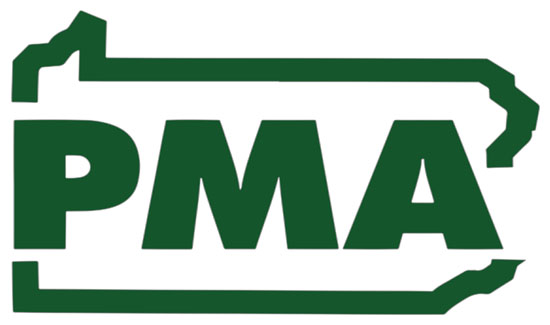Senate Checks Wolf’s Unilateral Imposition of Greenhouse Gas Compact on PA

35 PA Senators voted in a bipartisan manner to preserve separation of powers and maintain government accountability
The Senate of Pennsylvania correctly voted to check Governor Wolf’s unilateral attempt to enter the Commonwealth into an interstate compact without legislative consent. Senate Bill 119, sponsored by Senator Joe Pittman (R-Indiana), would delineate the process for legislative approval before Pennsylvania could impose a carbon tax or fee on employers engaged in electric generation, manufacturing, or other industries operating in the Commonwealth, or enter any multi-state program, such as the Regional Greenhouse Gas Initiative (RGGI), that would impose such a tax.
“Interstate compacts and taxing authority are functions of the General Assembly and Governor Wolf’s attempt to bind Pennsylvania to RGGI is clearly outside the extent of executive authority,” said David N. Taylor, President & CEO of the Pennsylvania Manufacturers’ Association. “Regrettably, this type of go-it-alone approach has become a theme of the Wolf Administration, and so we applaud the Senate for acting to restore the delineation of powers.”
Despite several Department of Environmental Protection advisory boards voting against the order, the Independent Regulatory Review Commission is posing concerns and requesting a delay in the implementation of the regulations. Pennsylvania’s likely voters are opposed to the unilateral action 60%-29%. Governor Wolf announced at a recent press conference that he still intends to push forward the regulations that would bind PA to the RGGI program by January 2022. At that press conference, held the same day as the Senate vote on SB 119, advocated said that Pennsylvania’s carbon tax would generate $550 million per year.
“What happens under RGGI is that we take more than a half-billion dollars from the pockets of local Pennsylvania employers and citizens every year based on policies and prices set by other New England and Mid-Atlantic states,” said Carl A. Marrara, Vice President of Government Affairs for the Pennsylvania Manufacturers’ Association. “Entire communities will be decimated because they can’t afford Governor Wolf’s tax, yet state government will take the proceeds and prop-up the Chinese-backed solar industry at the expense of our commonwealth’s workforce.”
The Power PA Jobs Alliance, of which PMA is a founding member, has pushed back throughout the RGGI regulatory process. The coalition is comprised of labor, industry, and consumer stakeholders advocating against state proposals that impose carbon dioxide emission taxes. The coalition has correctly pointed out that RGGI will result in the loss of over 8,000 (mostly union) industrial jobs, the loss of $2.87 billion in total economic impact, the loss of $539 million in employee compensation and the loss of $34.2 million in state and local taxes. Residential households, including low- and fixed-income families, will see their electric bills increase by nearly 15 percent. The carbon tax would have a significant negative impact on Pennsylvania’s statewide economy. Aside from the thousands of jobs lost at shuttered power plants, even more would be lost in factories, transportation logistics, producers of raw materials, vendor services, and all the jobs that support these core industrial activities.
As members on both sides of the aisle said during floor debate, a clean environment and a robust economy are not mutually exclusive. Pennsylvania is already ahead of the carbon dioxide emission reduction goals established under Governor Wolf’s Climate Action Plan and progress will continue to be made without RGGI. And in contrast, there are no realized environmental benefits from joining RGGI. Through the utilization of clean-burning natural gas and private investment in renewables, Pennsylvania has reduced emissions as much if not more than most of the RGGI states during the same time period; all while supplying RGGI states with exported electricity. The coal plants that were debated in the Senate have spent billions of dollars in upgrades to clean emissions while the waste coal facilities targeted under the RGGI proposal are actively reclaiming mountainsides and cleaning acid mine drainage. All this progress is threatened as DEP and Governor Wolf exaggerate the environmental benefits of RGGI. DEP and other RGGI supporters acknowledge that up to 90 percent of all carbon dioxide and other pollutant reductions from Pennsylvania plant closures will be offset by increased emissions in non-RGGI states like West Virginia and Ohio.
Ultimately, the bipartisan support of Senate Bill 119 is about protecting the separation of powers and holding government accountable. The imposition of a carbon tax under RGGI is a major public policy shift that must be debated by the General Assembly prior to enactment. Nearly every other state that is a part of RGGI did so through legislative action. The other interstate compacts that Pennsylvania belongs to were approved by the General Assembly. RGGI ought to be debated on the merits of the program by the representatives of the people of Pennsylvania.
Thank you to the 35 members of the Pennsylvania State Senate who voted YES to Senate Bill 119:
Sen. David Argall
Sen. Ryan Aument
Sen. Lisa Baker Baker
Sen. Camera Bartolotta
Sen. Jim Brewster
Sen. Michele Brooks
Sen. Pat Browne
Sen. Jake Corman
Sen. John DiSanto
Sen. Cris Dush
Sen Marty Flynn
Sen. Wayne Fontana
Sen. Chris Gebhard
Sen. John Gordner
Sen. Scott Hutchinson
Sen. John Kane
Sen. Waybe Langerholc
Sen. Dan Laughlin
Sen. Scott Martin
Sen. Doug Mastriano
Sen. Bob Mensch
Sen. Kristin Phillips-Hill
Sen. Joe Pittman
Sen. Mike Regan
Sen. Devlin Robinson
Sen. Mario Scavello
Sen. Pat Stefano
Sen. Christine Tartaglione
Sen. Robert Tomlinson
Sen. Elder Vogel, Jr.
Sen. Judy Ward
Sen. Kim Ward
Sen. Lindsey Williams
Sen. Gene Yaw
Sen. John Yudichak





